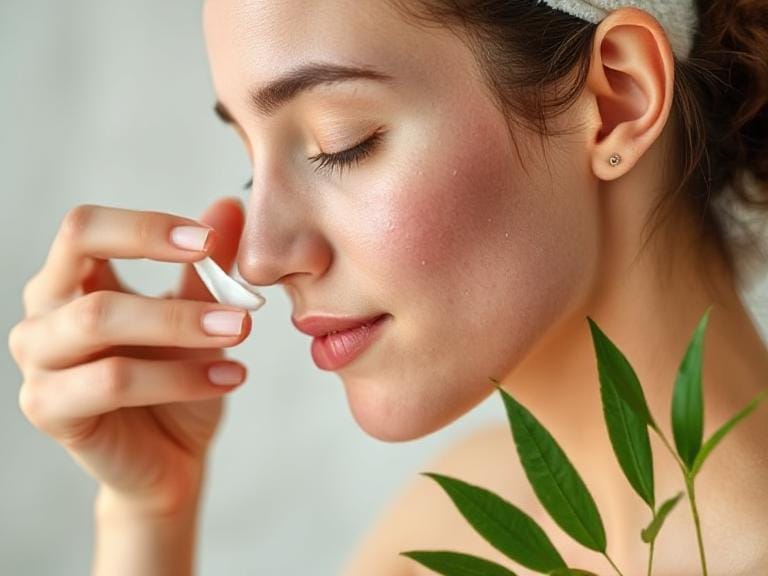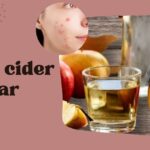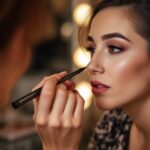Because of its antibacterial, anti-inflammatory, and antioxidant properties, neem is a well-known natural treatment for acne. This is how neem can successfully treat an acne case.
In this article
- Antibacterial effects.
- Effects of anti-inflammatory properties.
- Oil Control.
- Antioxidant Effects
- Cures for acne scars.
- Ways to Use Neem for Acne
- Precautions
- Can neem cure acne permanently?
How do you obtain spotless skin with neem?
What are the side effects of neem on the face?
Is neem able to cure skin?
Antibacterial properties
Neem contains chemicals such as nimbidin and azadirachtin, which help fight acne-causative bacteria, leading to reduced eruptions and infections.
Anti-inflammatory Effects
Neem reduces the redness, swelling, and irritation that comes with acne. It relieves irritated skin and assists in the faster healing of acne lesions.
Oil Control.

The excessive oil production is reduced by neem, which is one of the major causes for the blocked pores and subsequently resulting in their formation.
Antioxidant Properties.
Neem serves as a protective medicament to the skin from environmental insults, such as pollution and UV rays, which are also aggravating features of the acne condition and its already ongoing scars.
Prevention of acne scars
It helps in skin restoration plus reduction of post-acne pigmentation and scarring.
How to use Neem to treat Acne
- Neem Paste as Spot Treatment.
What You Will Need:
Fresh neem leaves/powder
Water
How To Use: Fresh neem leaves are ground into a paste, or neem powder is mixed with water to make a smooth paste.
This mixture is applied immediately to the acne-affected areas.
15- to 20-minute application, rinse off with lukewarm water.
Do this two to three times a week.
Neem and Turmeric Face Mask Ingredients:
Neem Powder or Paste;
A pinch of turmeric diluted in water or rose water.
How To Use:
Blend neem powder and turmeric in water into a smooth paste.
With the help of a brush, apply this uniformly on your face with no application to the eyes or the lips.
Keep for 15-20 minutes and rinse with lukewarm water.
Use once a week for cleaner skin.
Neem Oil
What You Will Need:
Pure and cold-pressed neem oil;
A carrier oil like jojoba or coconut oil
How To Use:
Dilute two or three drops of neem oil in one teaspoon of the carrier oil.
Using a cotton swab, apply this mixture to the zits.
Leave on overnight, washing off your face with water in the morning.
Repeat it two to three times in a week.
Neem water toner
Materials Needed:
A few neem leaves and 2 cups of water.
Directions:
Boil the neem leaves in water until it boils down to one-half.
Allow it to cool down, strain it, and store it in a clean container.
Apply with a cotton pad to your face like a toner after cleansing.
Neem scrub for exfoliation.
What You Need:
Neem powder, rice flour or crushed rolled oats, and honey or water?
How To Use: Mix the neem powder with rice flour and honey until you achieve a coarse paste.
Massage gently on your face in circular motions.
Rinse off with lukewarm water and pat dry.
This scrub should be used once a week to remove dead skin cells and clear clogged pores.
To administer the deep-cleaning treatment with neem steam,
You will need:
A handful of neem leaves
A bowl filled with steaming hot water
How To Use: Put the neem leaves in a bowl of boiling water.
Cover your head with a towel and steam your face for 5–10 minutes.
Pat your face dry and apply a toner or moisturizer.
For thorough cleaning, this should be repeated once a week.
Precautions
Always do a patch test to determine if an allergic reaction occurs.
It is important not to use neem too frequently because of its drying effect on your skin.
Do consult a dermatologist before using this regularly if you have sensitive skin.
Neem has proven an effective and natural treatment for acne, particularly in light to moderate doses. The neem remedies might also help in conjunction with dermatological treatments in extremely severe cases.
FAQs
Can neem cure acne permanently?
Neem is antibacterial, anti-inflammatory, and oil-regulating; still, hormones, diet, and genetics could make it ineffective as a long-term solution. Neem should be used in conjunction with other treatments and lifestyle changes.
Which is the best acne face pack?
There are many face packs available that may be useful for acne, including the following listed below:
Honey and lemon juice: Honey has natural antimicrobial properties, while lemon juice has a natural astringent action required for minimizing redness and irritation.
Aloe vera is soothing, and turmeric is antimicrobial and anti-inflammatory.
Honey and cinnamon are both natural antibacterial agents that can help eliminate acne-causing bacteria.
Curds and oats: Oatmeal exfoliates and cleanses the skin, while curds provide moisture and soothe.
Bentonite Clay: Absorbs extra oil and helps to unclog pores, making it very effective for acne-prone skin.
Precautions
Always do a patch test to determine if an allergic reaction will occur.
Avoid using neem frequently because it dries up your skin.
If, on the other hand, you have sensitive skin, consulting a dermatologist first is required before using this regularly.
Neem has been proven to act well as a natural acne therapy, especially when used in light to moderate amounts. In very severe cases, the neem cures may help alongside dermatological treatments.
Can neem cure acne permanently?
Neem is antibacterial, anti-inflammatory, and oil-regulating; however, genetics, hormone changes, and other dietary elements may cause it to fall short of being a permanent fix. A more meaningful outcome can be attained when Neem is incorporated into therapeutic and lifestyle changes.
What is the best face pack for acne?
There are multiple commercially available face packs suggested for addressing the acne issues, and some are mentioned below:
Honey and lemon juice: Honey is naturally antimicrobial, and lemon juice provides natural astringent properties required for lessening redness and irritation.
Aloe vera soothes, and turmeric has antimicrobial and anti-inflammatory properties.
Both honey and cinnamon are natural antibacterial agents that deal with different acne-causing bacteria.
Curds and oats: Oatmeal exfoliates and cleanses the skin, while the curds provide moisture and soothe.
Bentonite Clay: Absorbs excess oil and assists in unclogging pores, making it a very effective product for acne-prone skin.
Heals skin with neem.
The various qualities of neem, owing to its rich antioxidant content, assist in skin health and beauty. It fights against microorganisms, reduces inflammatory responses, and aids in healing.
Neem is good for the skin as an oil, powder, or infused water. But let’s not forget what’s important: patch testing! Don’t risk allergic reactions.
Can I wash my face with neem water?
You can wash with neem water! Neem water reduces oil secretion from skin pores, treats small breakouts of acne, and calms irritable skin. Making and using neem water couldn’t be easier:
Boil neem leaves: A- Put a handful of fresh neem leaves in water for about 10-15 minutes.
After that, allow the water to cool, and then strain it to remove the leaves.
It can be kept in a clean container and refrigerated for several days.
Use this neem-infused water to cleanse your face every day. It would keep the skin clear and healthy. Please remember to conduct a patch test first to make sure you will not have an adverse reaction.
What are the disadvantages of neem on the face?
Neem is a natural skin care ingredient that has its benefits but can also cause skin irritations, allergic reactions, dry skin, and a strong odor.
Being too powerful renders the skin dry if used excessively.
Before using neem products, perform a patch test and notify your dermatologist if you have discomfort.









